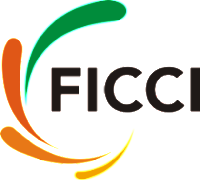
Kerala Finance Minister Thomas Issac has to be complimented for his pioneering effort to use the economic taxation policies to the ultimate benefit of human health. When he imposed the 14.5% tax on pizzas, burgers, and pastas served in branded restaurants, I was delighted.
While the food industry, led by the Confederation of Indian Industry (CII) has sought a review of the ‘fat tax’ saying it “would adversely affect growth of the quick service restaurant segment of the food industry and might set a similar trend for other segments as well’, I don’t think there is any need for the Kerala government to even take notice of the industry’s representation. One of the main reasons behind the rising sales of junk food is because they are cheaper.
I would like Thomas Issac to periodically raise the duties on junk foods, and also include sugary drinks in the tax net. The ‘fat tax’ he introduced eventually must turn out to be a deterrent for the food industry. Childhood obesity has now reached serious proportion globally.
We cannot be a helpless spectator and allow the food industry to play havoc with human health anymore. The United State’s National Centre for Biotechnology Information (NCBI) estimates more than 22 million children to be affected worldwide.
Not only in children, obesity is also growing among the adults and that too at an alarming rate. Worldwide, 39% of the adults are over-weight, of which 13% are obese, and this is leading to the growth of lifestyle diseases like diabetes, cardiovascular diseases and blood pressure.
If we take diabetes alone, the World Health Organisation (WHO) estimates show 422 million people suffered from the disease in 2014. This is roughly 8.5% of the global population. Of this, India also is home to 69 million diabetic patients, and the number is expected to swell to 100 million by 2030.
Denmark started the trend in 2011 by imposing a tax on foods that contained more than 2.3% fat. Many countries have since introduced similar taxation measures with Mexico bringing in a ‘sugar tax’ on sugary drinks, and Hungry has a tax on foods that contained high levels of sugar and salt. In April this year, UK has a sugar tax in a bid to curb growing obesity and diabetes. South Africa is also considering slapping a 20% tax on sugary beverages.
Imposing additional taxes on sugary drinks and junk foods should help discourage the consumption of junk foods. This should however not be taken as a stand-alone measure. Fat tax should be accompanied by consumer awareness campaigns.
The US first lady Michelle Obama perhaps sensed it early and soon after Barack Obama took over as US president, she launched a campaign on fighting junk food ads of sugary breakfast cereals, fast food and soft drinks aimed at school children.
Five years after she launched a nationwide campaign called “Let’s Move!”, the US Department of Agriculture last year phased out junk food advertisements from vending machines in schools across the country. Even billboards of Coke and Pepsi were removed from school eateries. The big retail giant Walmart has promised to reduce salt content in its products by 25% and sugar by 10%.
Childhood obesity is known to be a huge problem in America with obesity rates among those between 2 and 19 years being as high as 17%. And it is here that Michelle Obama’s campaign is slowly making an impact. At least obesity levels in children between the age of 2-5 are coming down in the US.
Tax on soft drinks
Although India is reportedly planning to bring in a tax on sugary beverages and soft drinks, any such measure draws a loud protest from the TV channels, which more or less have an allegiance to a business house. With industry bodies like FICCI and CII jumping saying it will hit industrial growth, the government normally goes on the back foot.
But I see a possibility of a big national campaign, which will certainly leave behind a significant impact, if a campaign on the lines of popularising yoga is undertaken by the Prime Minister Narendra Modi. He is already seeking the application of yoga for reducing diabetes; cracking down on the consumption of junk foods and sugary drinks in a Swasth Bharat campaign only completes his mission.
Kerala’s ‘fat tax’ has certainly woken up the nation to the need for stringent measures to control the growing threat of diabetes and other lifestyle diseases. I propose two action points: First, is to introduce a high level of tax on sugary drinks, including colas, and junk foods. This must be accompanied by a nationwide Swasth Bharat campaign, which should also aim at looking afresh at some of the policy decisions.
For example, 100 per FDI in processing industry should not be allowed in foods which contain more salt and sugar. Breakfast cereals, like cornflakes and its variants, are more of a desert than healthy foods. Safe food standards must be laid down by the Food Safety and Standards Authority of India (FSSAI) which the manufacturer and retail trade must be asked to comply with.




Leave a Reply
You must be logged in to post a comment.